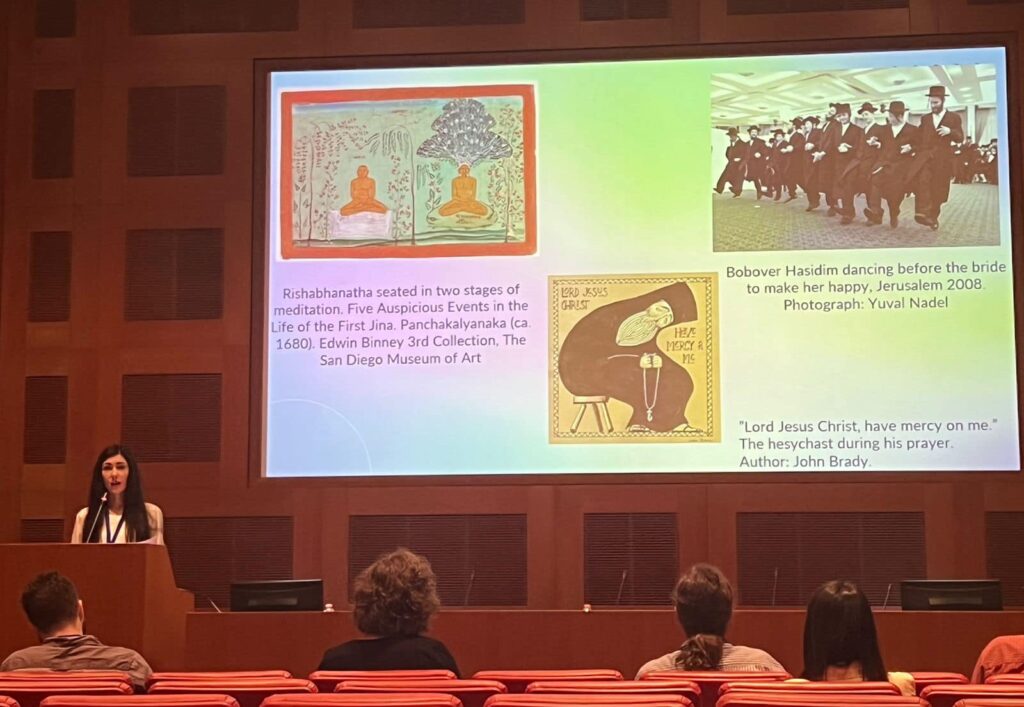The 2024 Annual Conference of the European Academy of Religion gathered in Palermo, Sicily, from May 20 to 23, about 1300 scholars from Europe and beyond to discuss the overarching topic of Paradigm Shifts. Among them there were some of our JPII Leaders highly involved in academia.
JPII Leader Ana Petrache (cohort XIII, Romania) was involved in two different and somehow complementary panel discussions. Dr. Petrache she was one of the panelists on May 20 at the Author Meets Critique panel presenting the book authored by Michael Driessen “The Global Politics of Interreligious Dialogue” that was part of the topics discussed during the Rome Summer Seminars on Religion and Global Politics which Ana attended last year thanks to a grant from the JPII Center. Commenting about the book, Petrache said: “the book explains how religious figures in the Middle East shape public opinion and aid in modernizing society, particularly regarding topics like religious diversity and democracy.”
She continues underlining how these contributions by religious leaders might be driven by political reasons. This might create a ”political landscape influenced by religious visions, which are in turn promoted and empowered by political interests and this raises a concern for me since religious actors might be perceived merely as components within the political system, potentially diminishing the spiritual essence of their calling.”

On May 20 other two JPII Leaders were presenting at EuARe in the same panel on “interfaith dialogue as a theological, ethical and spiritual paradigm shift”. Halil Avci (cohort XV, Germany/Turkey and right now at Georgetown University) offered a paper on “Christian-Muslim Relations after the “A Common Word” Initiative of 2007: Towards a Muslim Self-Understanding in Relation to Christianity.” Nataly Pavlyk (cohort XII, Ukraine and right now affiliated with the National Academy of Sciences in Ukraine) presented on “The Value of the Body in Spiritual Practices: Jainism, Hesychasm, and Hasidism.”

